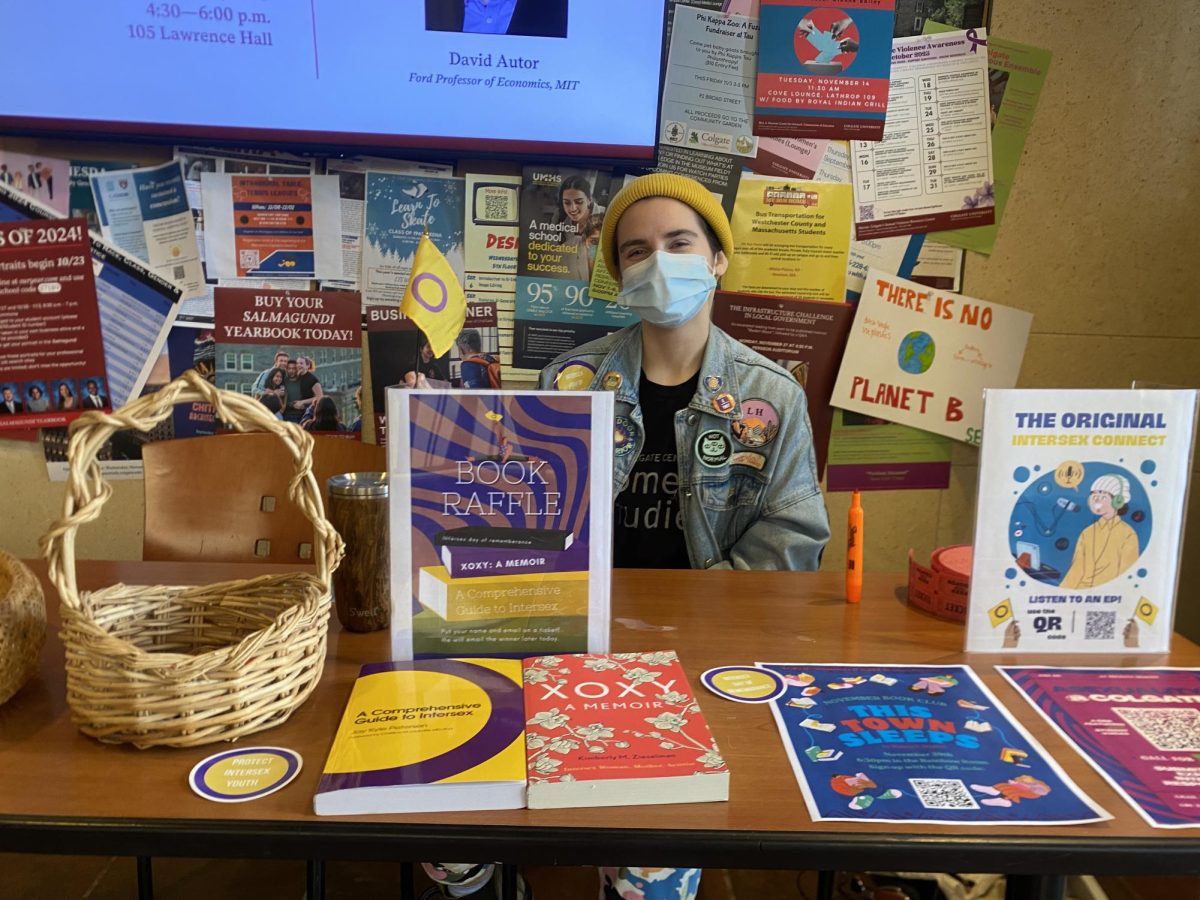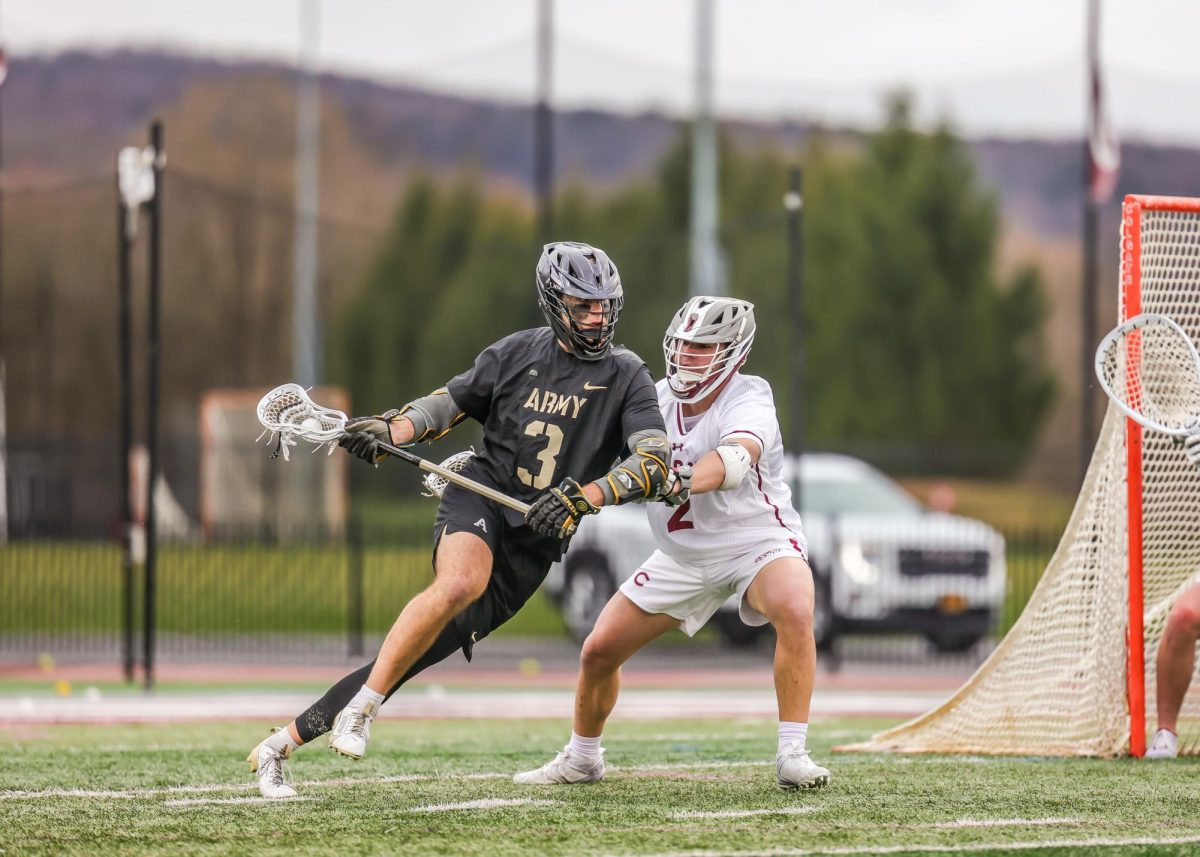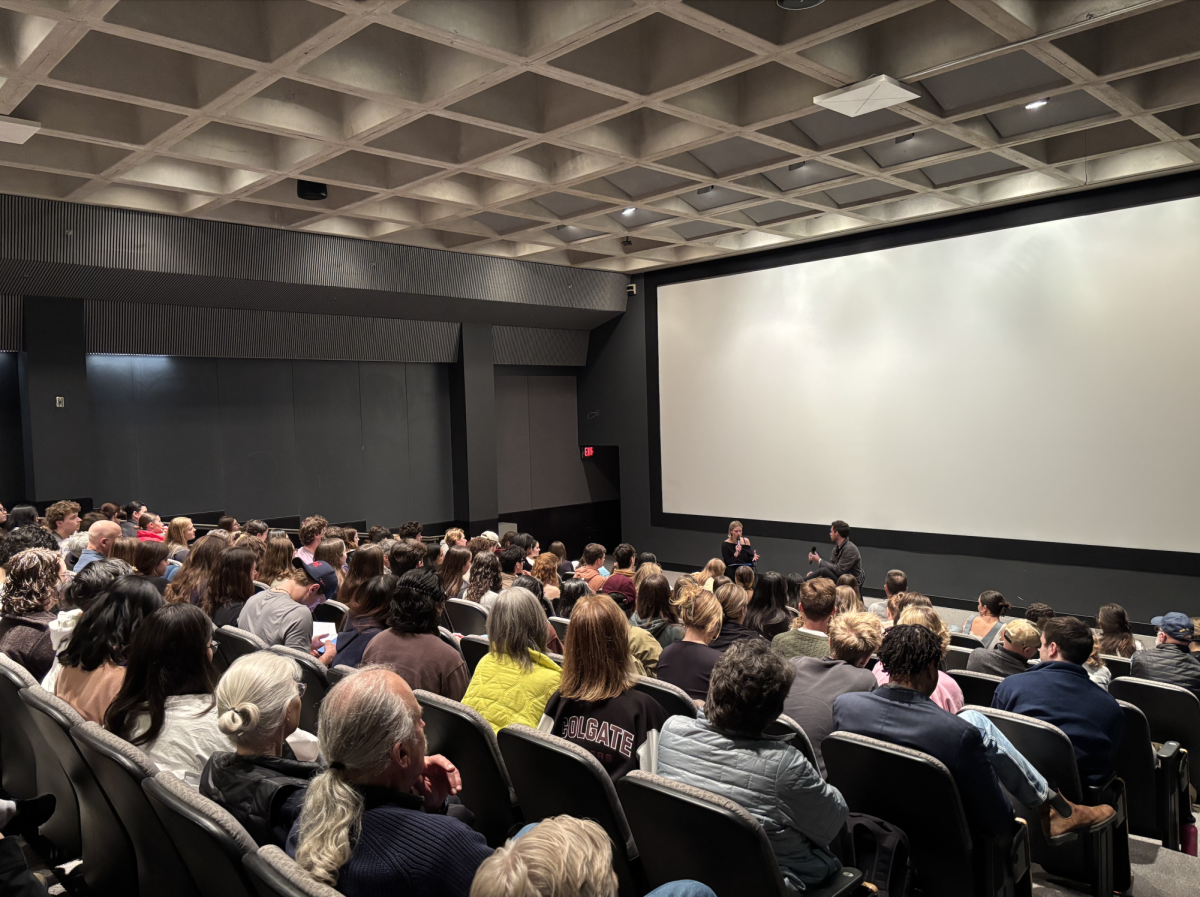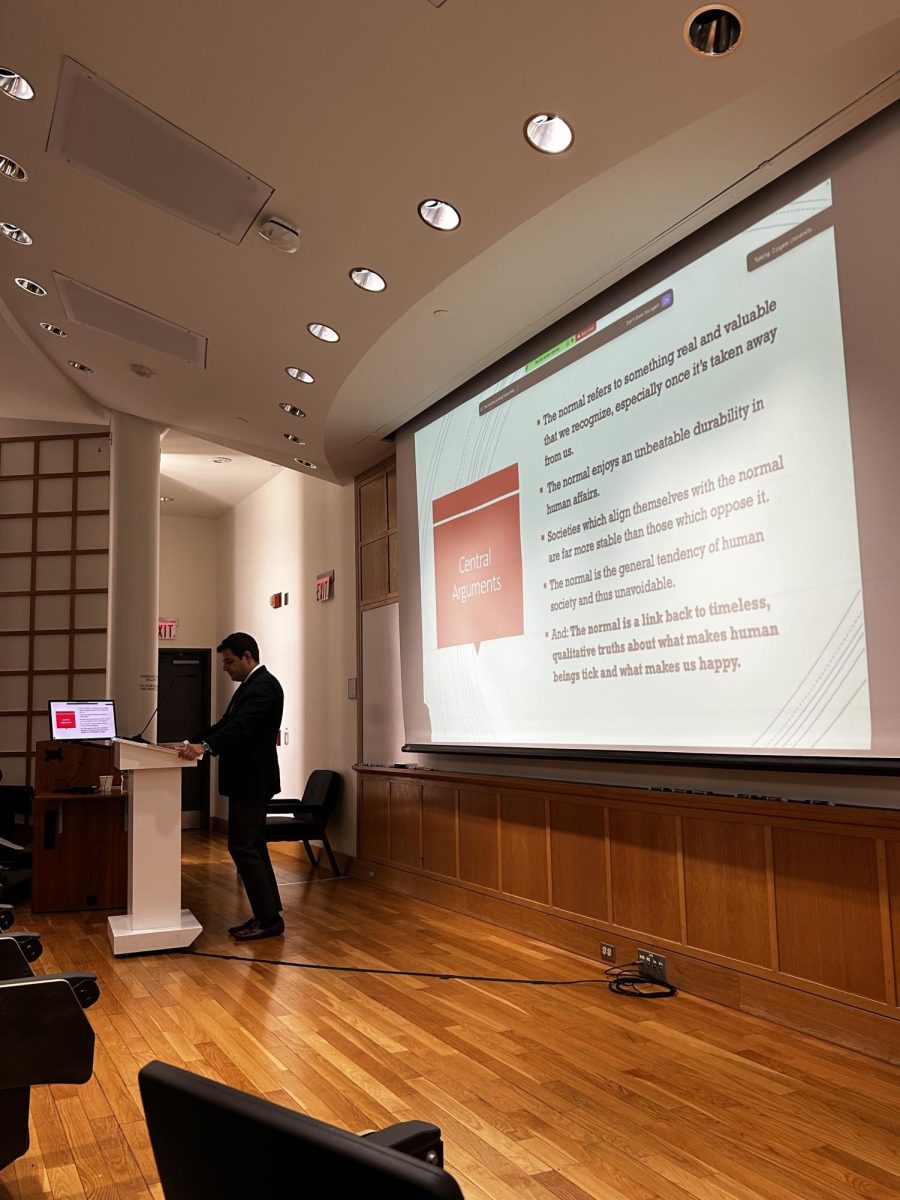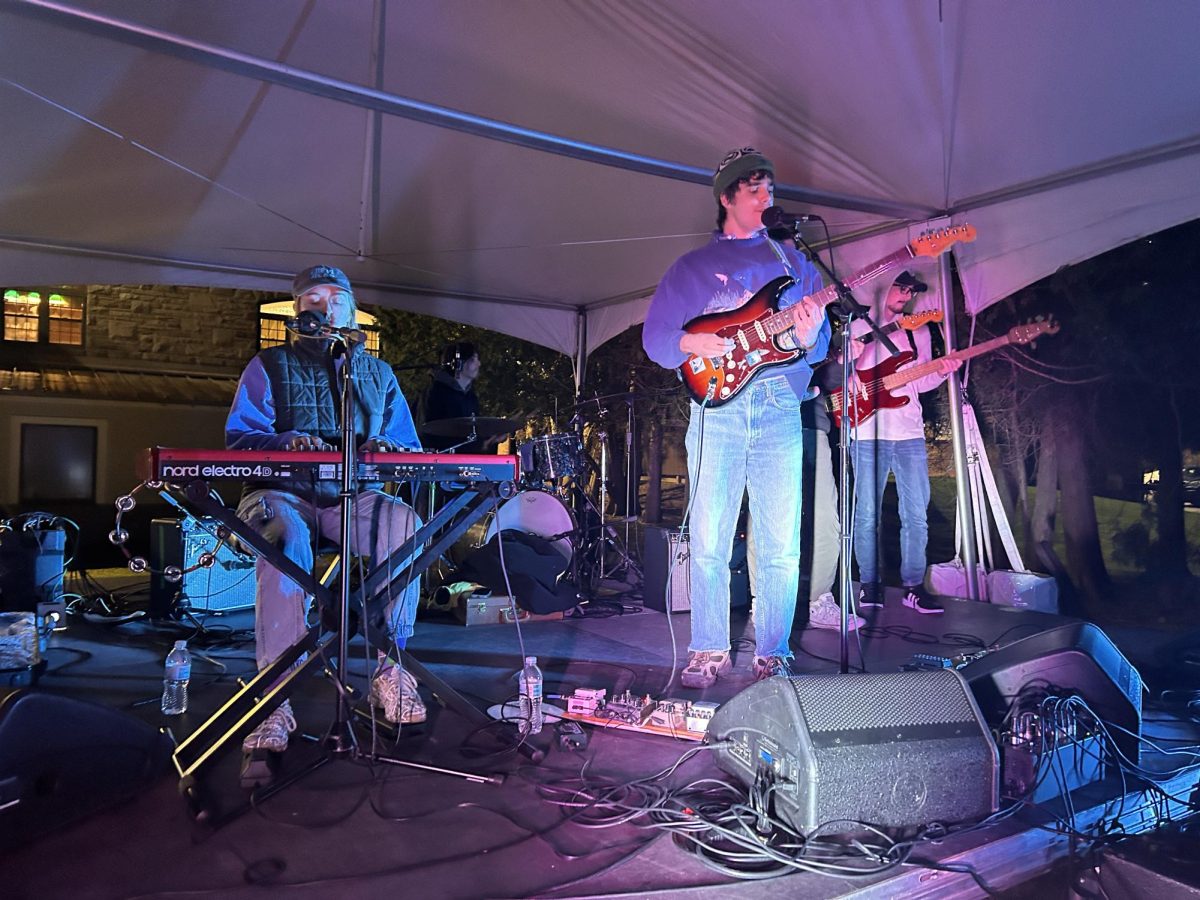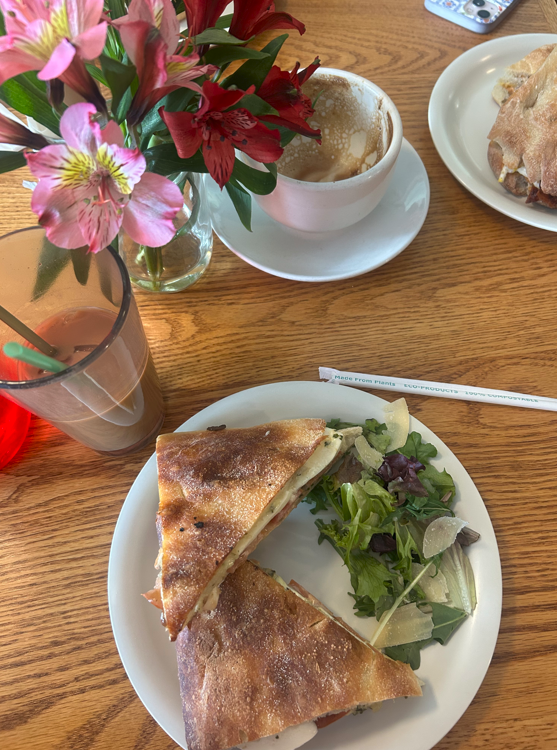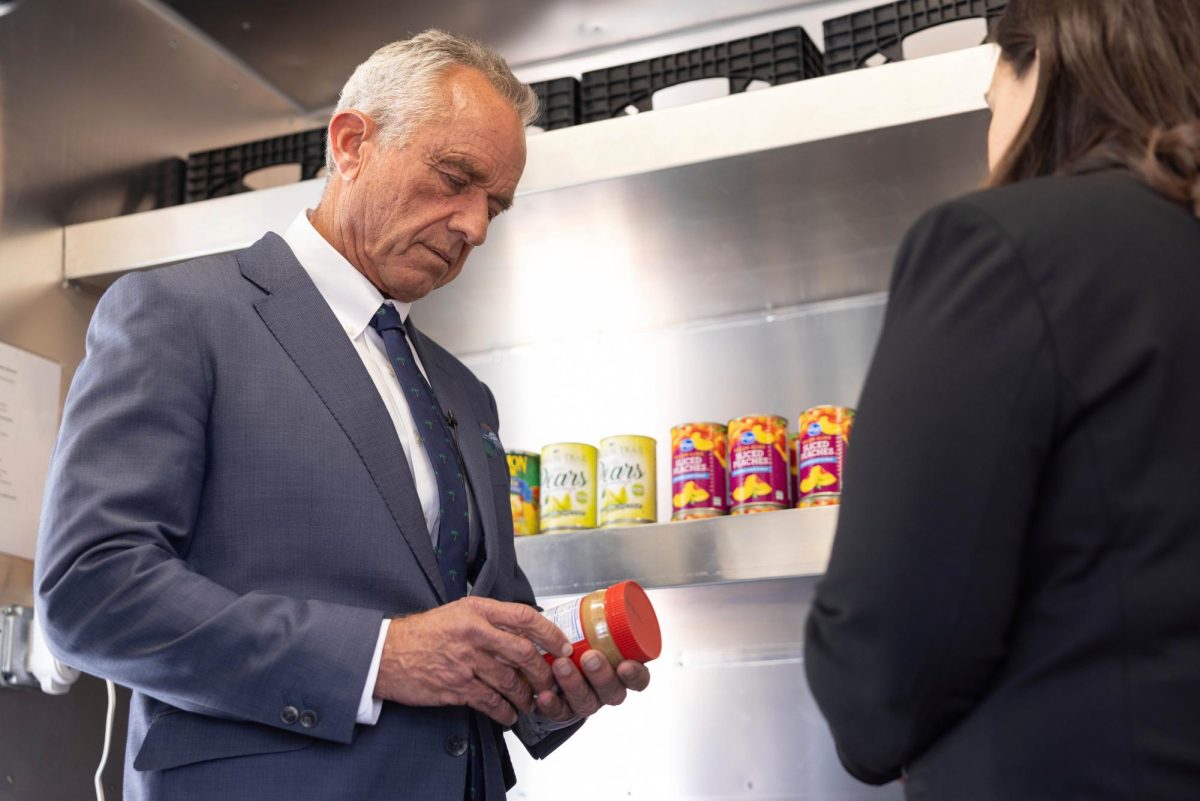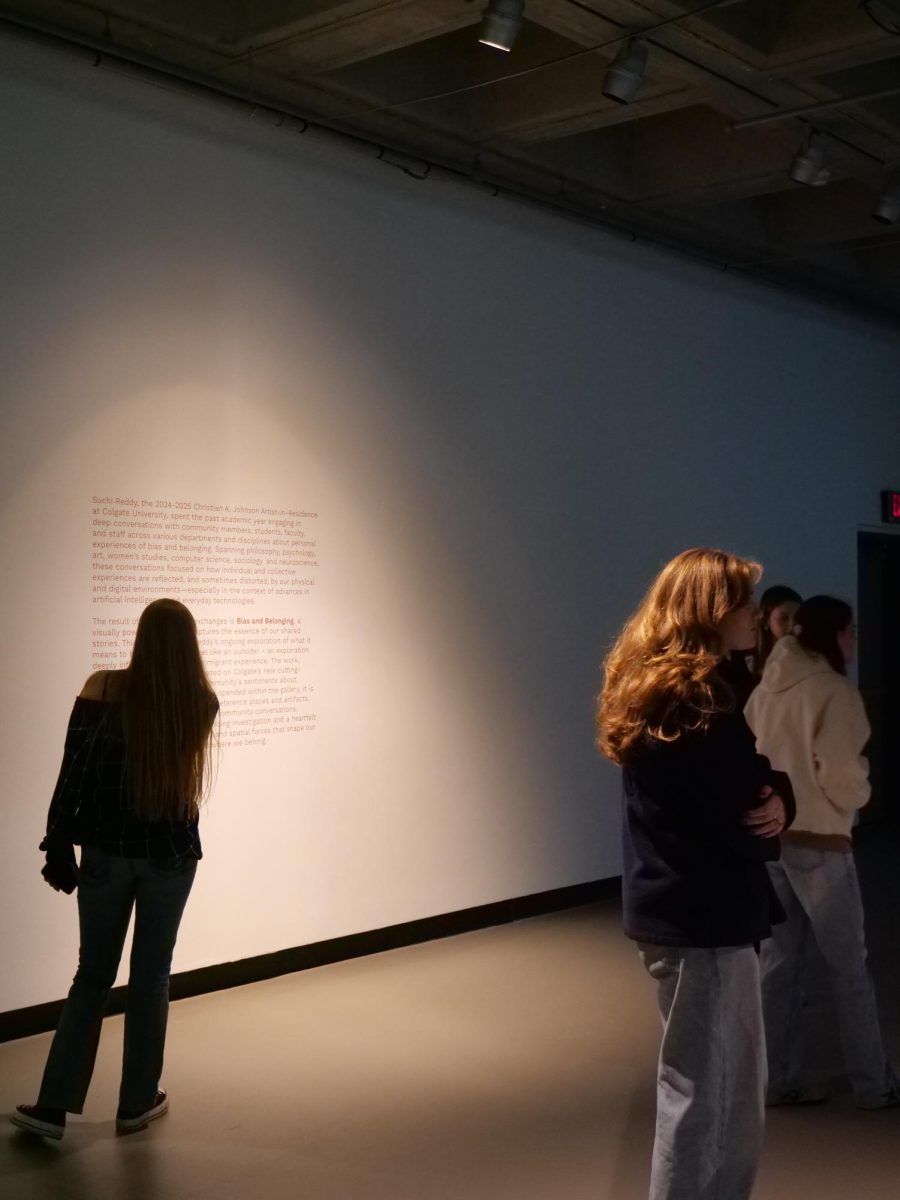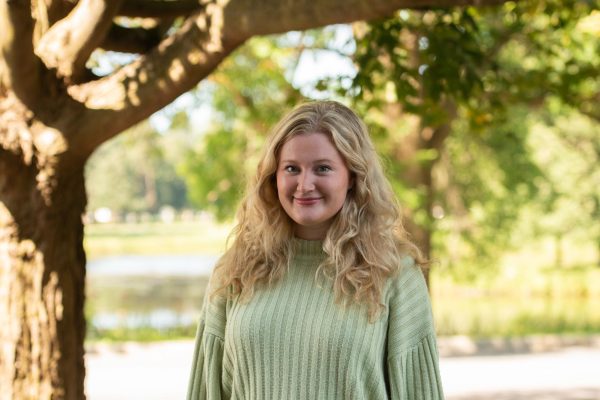The Office of LGBTQ+ Initiatives set up a table at the O’Connor Campus Center (Coop) on Nov. 8 to raise awareness for the intersex community on Intersex Day of Remembrance. The day is internationally observed and intended to raise awareness about the issues faced by intersex individuals.
Senior R Hunsicker, who is an intern at the Office of LGBTQ+ Initiatives and the co-founder of Lambda at Colgate University, helped run the Coop table. Hunsicker explained the meaning of Intersex Day of Remembrance.
“Intersex Day of Remembrance is an annual celebration meant to honor the stories and lives of intersex individuals throughout history who have faced adversity and discrimination with resilience,” Hunsicker said. “It is meant to remind people of the issues faced by intersex people and their fight for bodily autonomy, respect and the right to self-determination. It’s celebrated on November 8 to honor Herculine Barbin, one of the first people to be documented as intersex in 1838.”
Intersex Day of Remembrance — also referred to as Intersex Solidarity Day — was first observed in 2005 to memorialize Barbin, a French intersex individual. Barbin was born in 1838 and assigned female at birth; however, authorities forced Barbin to undergo medical examination following reports that she did not have typical female anatomy. Barbin was reassigned as a male and forced to assume a male identity. Barbin faced intense public scrutiny and was the target of media attacks, leading her to flee to Paris and live in anonymity. There, Barbin wrote a memoir about her lived experiences as an intersex individual. Shortly after, at the age of 29, Barbin took her own life. Barbin’s memoir was recovered post-mortem, later published and used by French sociologist Michael Foucault. Intersex Day of Remembrance now serves to raise awareness for intersex individuals who, like Barbin, face human rights violations.
Sophomore Oscar Brown, who is an LGBTQ+ liaison and the co-president of Lambda, also helped run the Coop table. Brown spoke about the importance of Intersex Remembrance Day nationally and on Colgate’s campus.
“Intersex individuals face discrimination and stigma, and [were] recipients of non-consensual medical treatment when they were children. These surgeries seek to eliminate intersex traits and make the individual adhere to binary social standards at the discretion of their parents and/or the doctor,” Brown said. “I believe this is an important event for Colgate to support because it is something not many students here may know about. Raising awareness and understanding for these kinds of issues helps us become better, more caring people and destigmatizes these kinds of conversations. It also allows for us to be able to advocate for positive change to be had in combating the kinds of discrimination intersex individuals face.”
The table at the Coop had lots of decorations, information and even a raffle. Director of LGBTQ+ Initiatives Lyosha Gorshkov discussed some of the key features of the table.
“We organized the tabling at the Coop with the information about intersex traits and intersex activism across the board. We also had a raffle that allowed students to win one of the books on intersex issues, ‘XOXY Memoir’ by Kimberly M. Zieselman and ‘A Comprehensive Guide to Intersex’ by Jay Kyle Petersen. Attendees were provided with zines on intersex, pins and stickers,” Gorshkov said.
Brown discussed why the Office of LGBTQ+ Initiatives chose the Coop to commemorate the Intersex Day of Remembrance.
“The Coop is a great spot to table for events like these because so many people flow in and out of there each day, typically during a part where they have some down time, which gives them a chance to come and see the table, ask questions and learn more about being intersex. If you see us in the Coop, especially if you don’t know what we’re there for, stop by and ask us some questions and pick up some information,” Brown said.
Brown hopes that Colgate students are more aware of Intersex issues following the Intersex Day of Remembrance programming.
“For me, I hope that people will simply be more aware of the kinds of identities people can have and how to support those identifying with them,” Brown said. “Being present and seen on campus is super important in having these issues be acknowledged to begin with, and I hope it will continue to pave the path [toward] having more ongoing discussions about how to support intersex individuals every day of the year.”
Hunsicker echoed Brown’s sentiments and explained that discrimination against intersex individuals is an ongoing issue that Colgate students should be aware of.
“I hope my peers will not only learn what intersex is, but rethink what they assume about people when they first meet them. How people look does not define who they are or how they identify. Intersex people are beautiful and so many of them exist. Intersex people deserve love, compassion and calmness, not defensiveness or belittlement,” Hunsicker said.
Hunsicker also spoke about the Day of Remembrance within the context of current political conversations concerning LGBTQ+ legislation.
“I also hope that Colgate students will learn about the severity of intersex genital mutilation, especially with the almost 600 anti-trans bills that have been introduced this year,” Hunsicker said. “While politicians are banning gender-affirming surgeries, they are trying to make intersex children undergo invasive, traumatizing surgeries to make their bodies conform to socially acceptable sex labels. Genital mutilation is happening right where we live, and we need to work together to stop it.”


